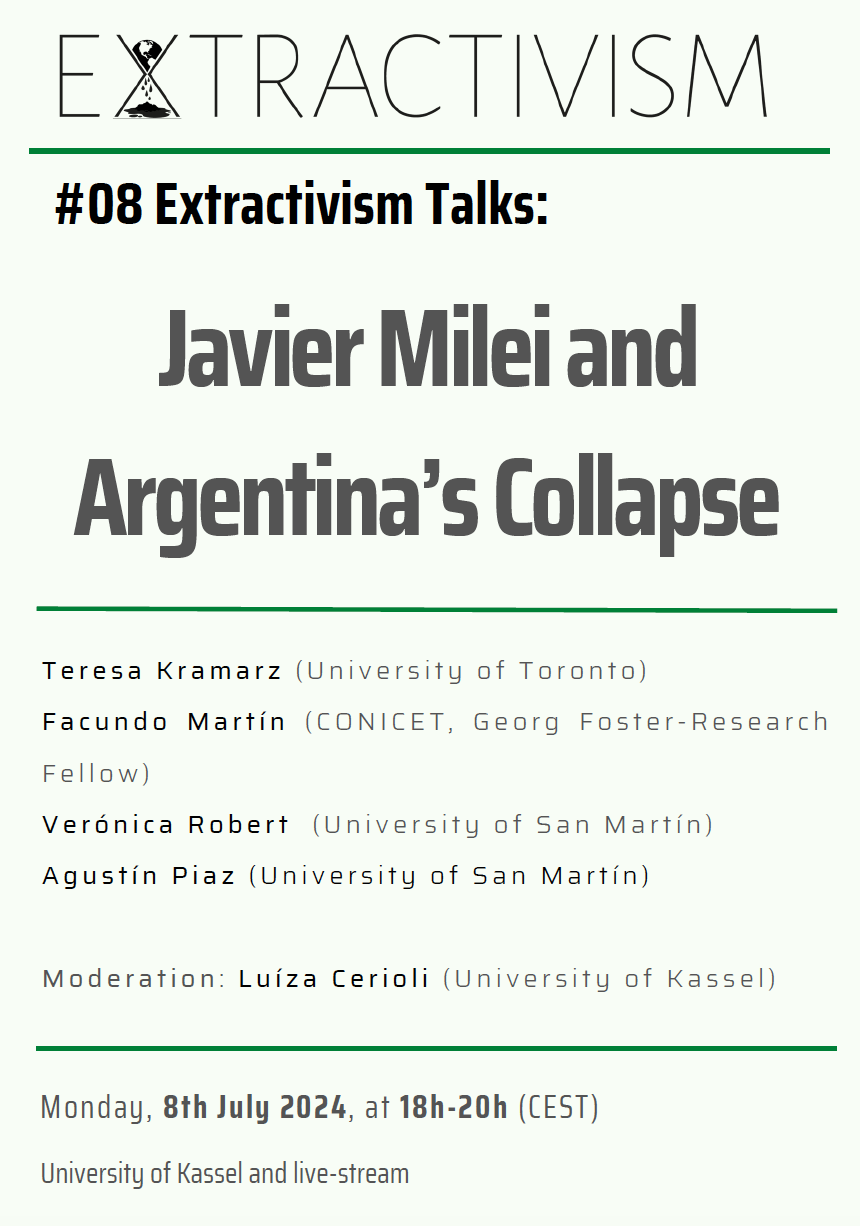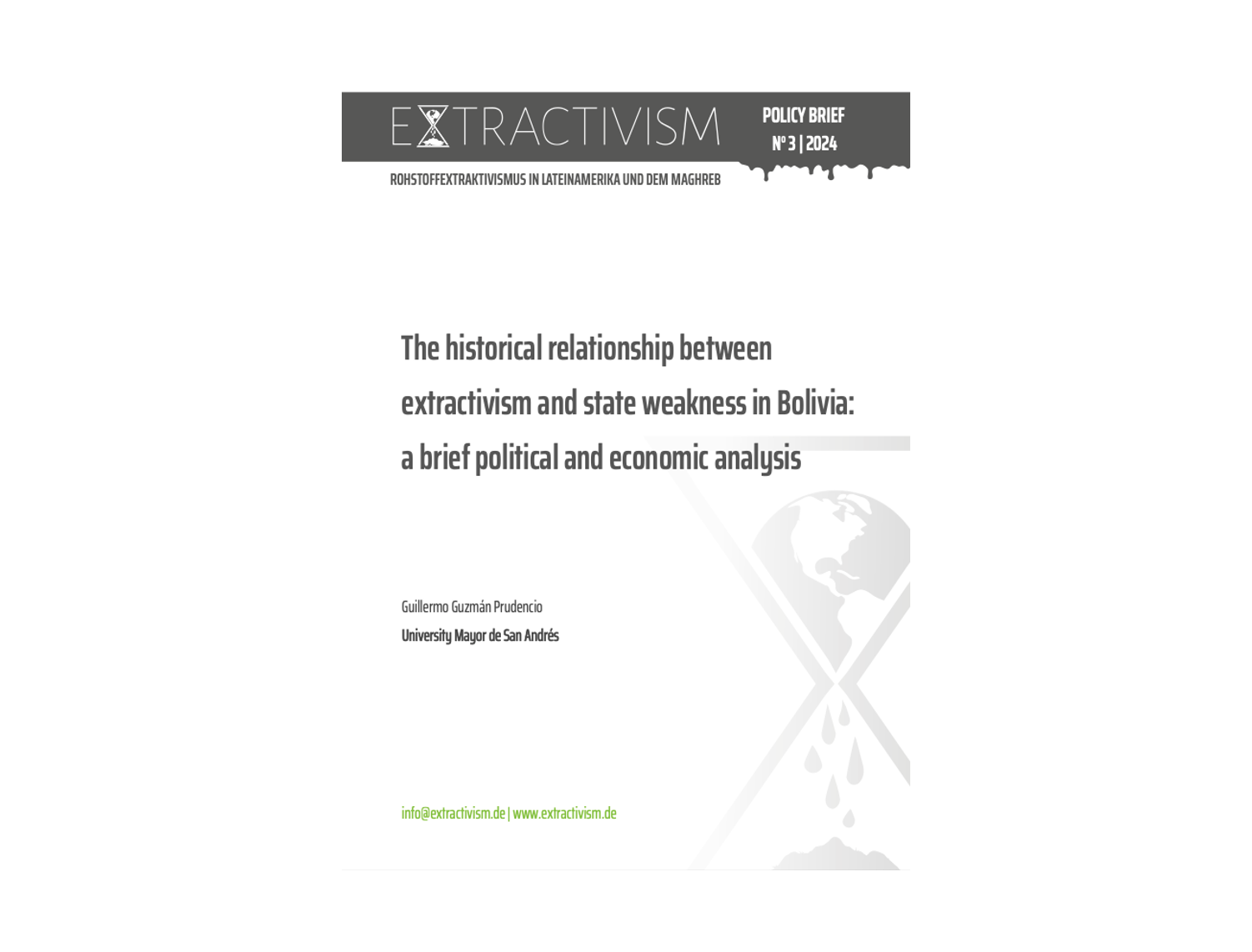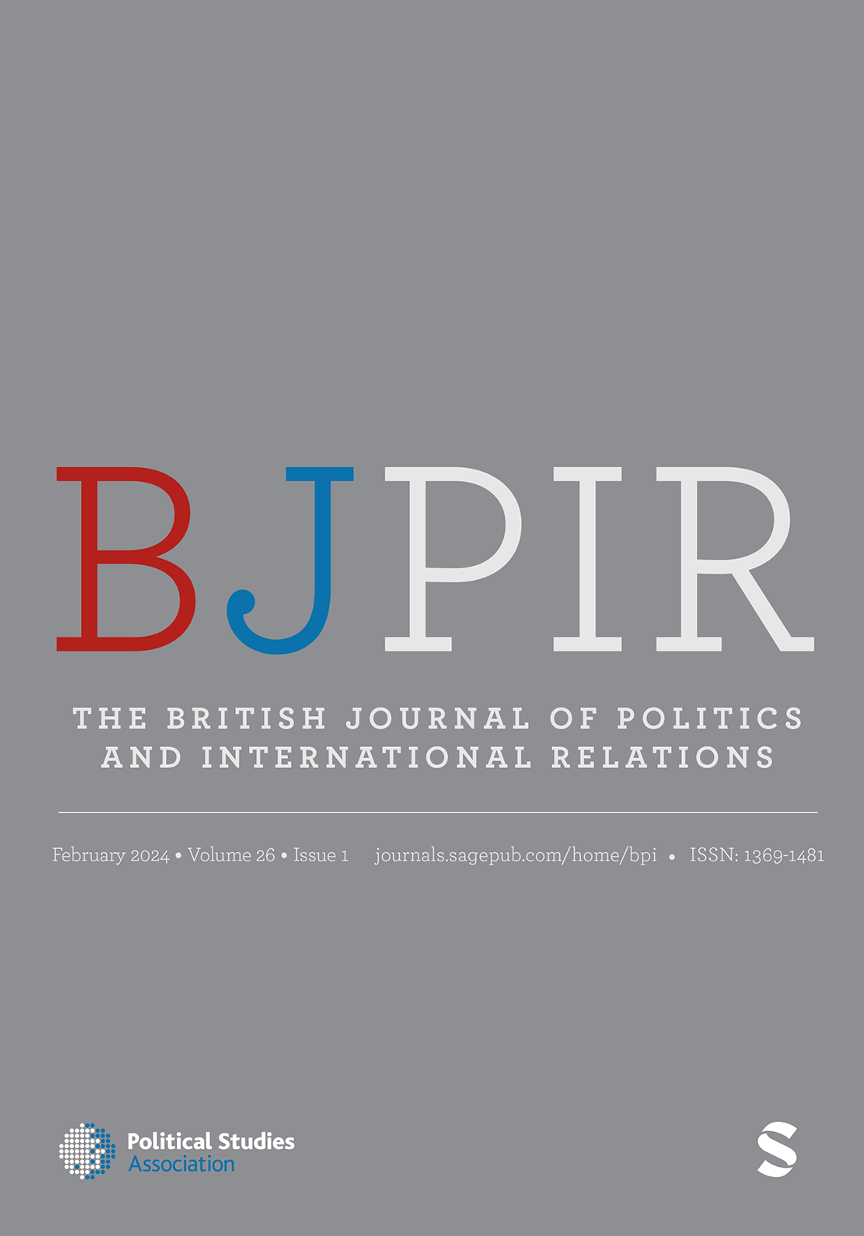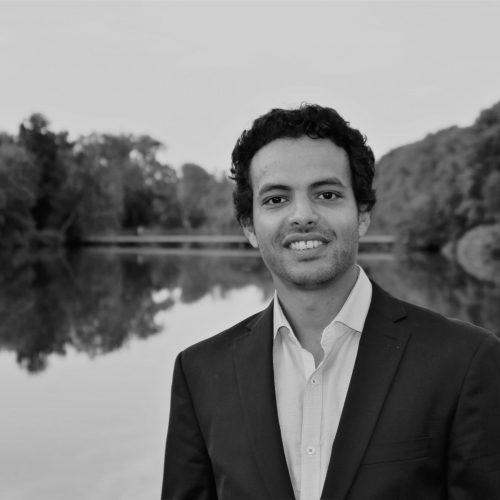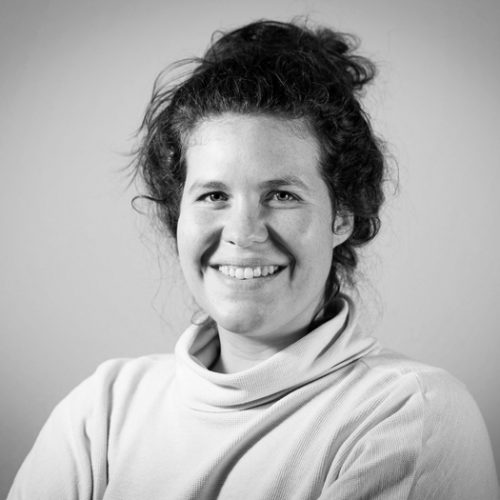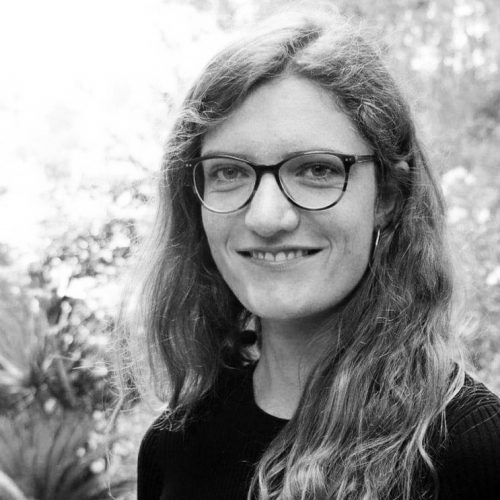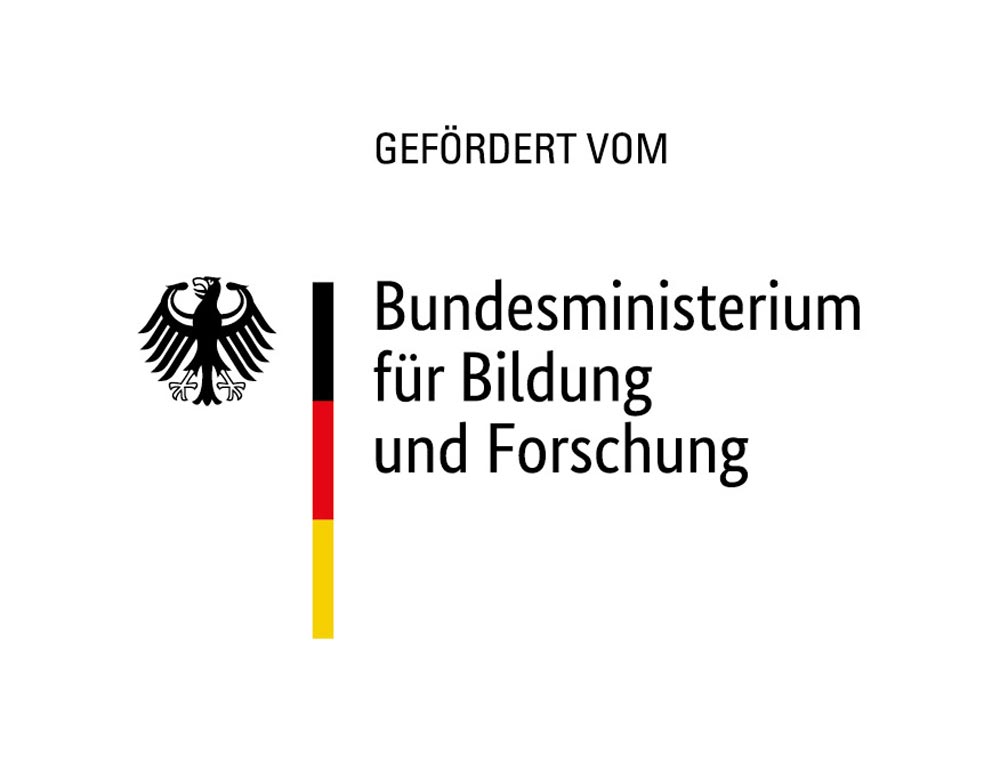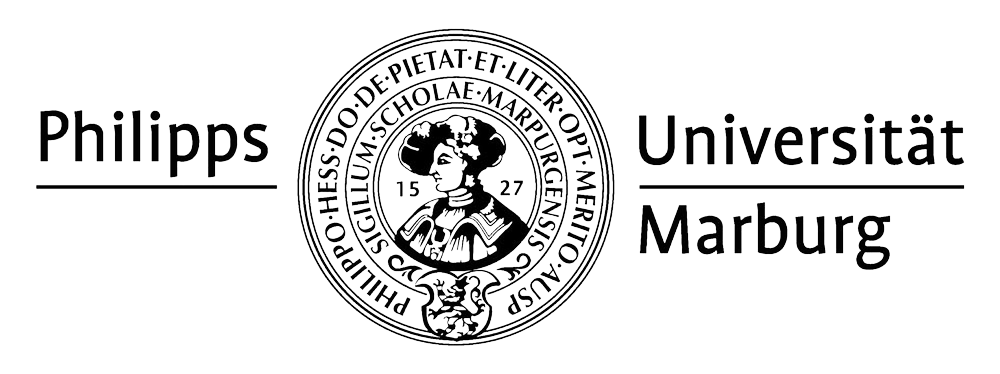THE PROJECT
NATURAL RESOURCE EXTRACTIVISM IN LATIN AMERICA AND THE MAGHREB
extractivism.de is a collaborative research project funded by the German Federal Ministry of Education and Research (BMBF). The project investigates natural resource extractivism in Latin America and the Maghreb.
Our project combines:
Social Research in and together with the Global South

International Research Network and Fellows

Transfer of Research Findings into Politics and Society
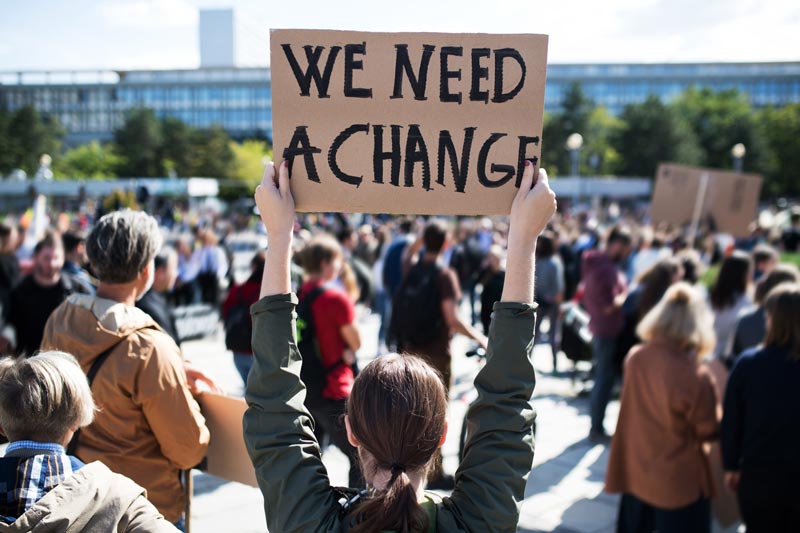
ACTIVITIES
Encuentro Latinoamericano 2024 : Ecofeminismo y Ecocrítica. Nuevas perspectivas interdisciplinarias desde América Latina y el Caribe
Konferenzteilnahme an “Energiewandel, Entwicklungsprozesse und internationale Beziehungen”
Extractivism Talks #08: “Javier Milei and Argentina’s Collapse”
Fellows

Ignacio Sabbatella
Latin American Faculty of Social Sciences
(Argentina)

Pedro Romero Marques
University of São Paulo
(Brazil)

Mohamed Ismail Sabry
Erasmus University of Rotterdam
(Netherlands)

Hanen Keskes
Natural Resource Governance Institute
(Tunisia)

Beth Stratford
University College of London
(United Kingdom)

Laura García-Montoya
University of Toronto
(Canada)

Raouf Farrah
Global Initiative against Transnational Organized Crime (GI-TOC) (Switzerland)

Ouafa Haddioui
independent
researcher

Veronica Robert
National University of San Martín
(Argentina)

Teresa Kramarz
University of Toronto
(Canada)

Ramon Pichs-Madruga
Intergovernmental Panel on
Climate Change (Cuba)

Samir Bellal
University Mouloud Mammeri de
Tizi-Ouzou (Algeria)

Osmel Manzano
Inter-American Development Bank
Georgetown University (USA)

Juan Infante-Amate
University of Granada
(Spain)

Rebeka Gluhbegovic
Phillips University Marburg
(Germany)
Click for an overview of the project publications:
Zu Reich für die Energiewende? NEW ARTICLE by Hannes Warnecke-Berger & Hans-Jürgen Burchardt (2024)
Institutional change in the context of a rentier economy: the Algerian case
Extractivism and political instability in the Tunisian Gafsa mining basin
What impact has the El Kamour social movement had on the establishment of a new socio-economic development model in Tataouine (Tunisia)?
The historical relationship between extractivism and state weakness in Bolivia: a brief political and economic analysis
New publication: Cerioli, L. (2024). Neoclassical Realism, Global International Relations, and the unheard echoes of Realist practices from the South. The British Journal of Politics and International Relations, 0(0).

Zu Reich für die Energiewende? NEW ARTICLE by Hannes Warnecke-Berger & Hans-Jürgen Burchardt (2024)
We published a new article: Warnecke-Berger, H., & Burchardt, H.‑J. Zu reich für die Energiewende? WeltSichten: Magazin Für Globale Entwicklung Und Ökumenische Zusammenarbeit, 2024(3). https://www.welt-sichten.org/artikel/42681/zu-reich-fuer-die-energiewende

Institutional change in the context of a rentier economy: the Algerian case
This Extractivism Policy Brief 06/2024 shows: Despite global economic changes, the institutional configurations of the rentier system of accumulation in Algeria remain fundamentally the same.

Extractivism and political instability in the Tunisian Gafsa mining basin
This Extractivism Policy Brief 05/2024 shows: In the mining region of Gafsa in Tunisia, the phosphate industry has long played a central role. Despite its

What impact has the El Kamour social movement had on the establishment of a new socio-economic development model in Tataouine (Tunisia)?
This Extractivism Policy Brief 04/2024 shows: Tunisia has faced socio-political crises linked to the exploitation of natural resources, mainly in the southern part of the

The historical relationship between extractivism and state weakness in Bolivia: a brief political and economic analysis
This Extractivism Policy Brief 03/2024 shows: Historical dependence on extractive rents has contributed significantly to the structural weakness of the Bolivian State. Ruling political coalitions
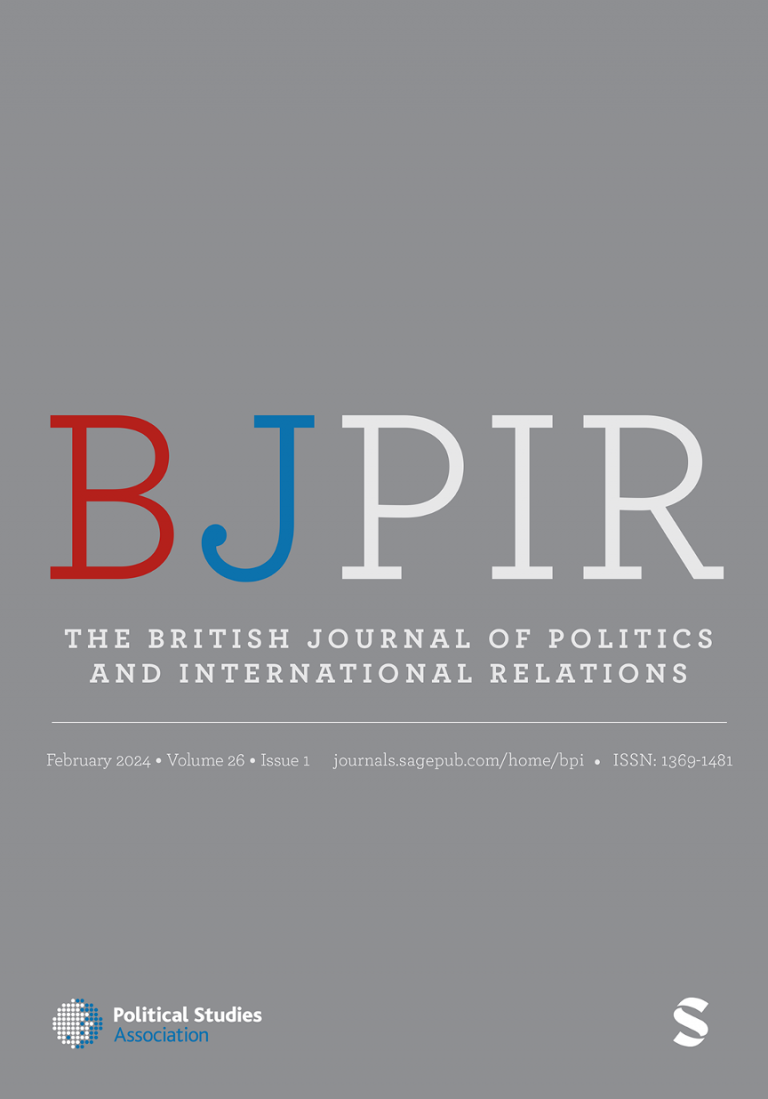
New publication: Cerioli, L. (2024). Neoclassical Realism, Global International Relations, and the unheard echoes of Realist practices from the South. The British Journal of Politics and International Relations, 0(0).
Our post-doctoral researcher, Dr Luíza Cerioli, published a new article with The British Journal of Politics and International Relations (BJPIR) entitled “Neoclassical Realism, Global International
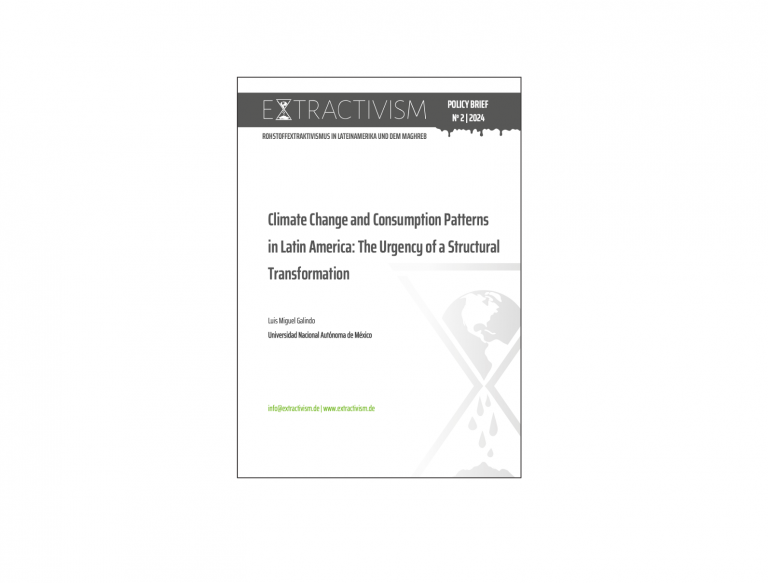
Climate Change and Consumption Patterns in Latin America: The Urgency of a Structural Transformation
This Extractivism Policy Brief 02/2024 shows: Climate change obstructs Latin America’s development, affecting the economy, society, and the environment. A substantial investment is needed for
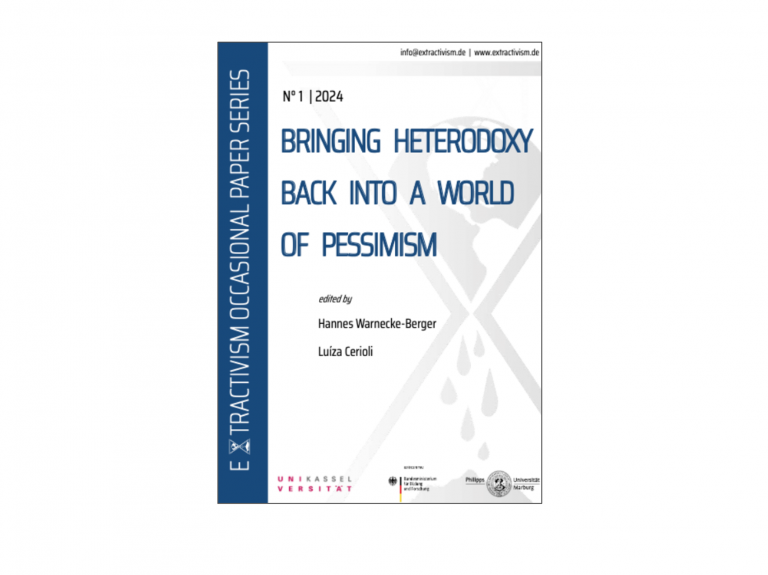
Bringing heterodoxy back into a world of pessimism
Extractivism Occasional Paper 01/2024: Bringing Heterodoxy Back into a World of Pessimism Abstract The world is one of crises. In fact, it seems that a
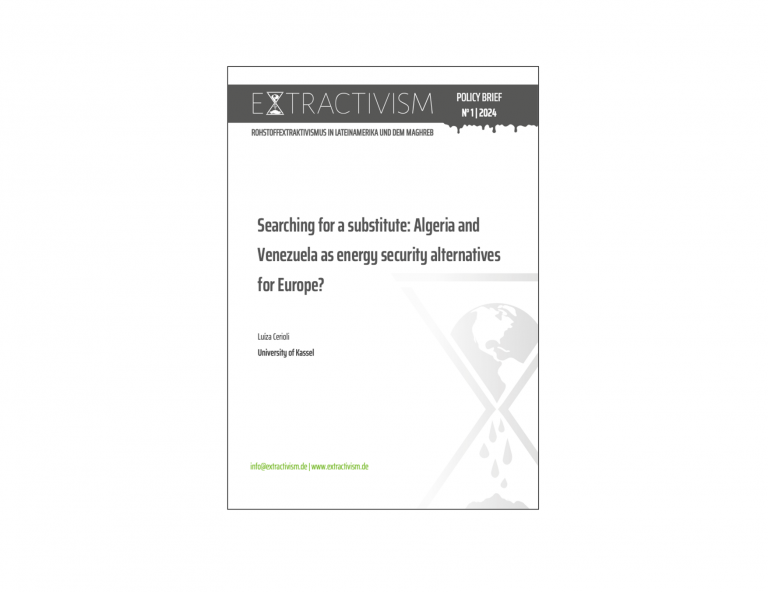
Searching for a substitute: Algeria and Venezuela as energy security alternatives for Europe?
This Extractivism Policy Brief 01/2024 shows: • The Ukraine war forced a change in the EU energy strategy, creating, this way, a window of opportunity
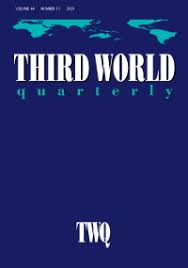
New article: Warnecke-Berger, H., Burchardt, H.‑J., & Dietz, K. (2023). The Failure of (Neo-)Extractivism in Latin America – Explanations and Future Challenges. Third World Quarterly, 44(8), 1825–1843.
The article scrutinises the failure of neo-extractivism in Latin America. Parallel to the global super cycle of commodity prices, many Latin American governments turned to
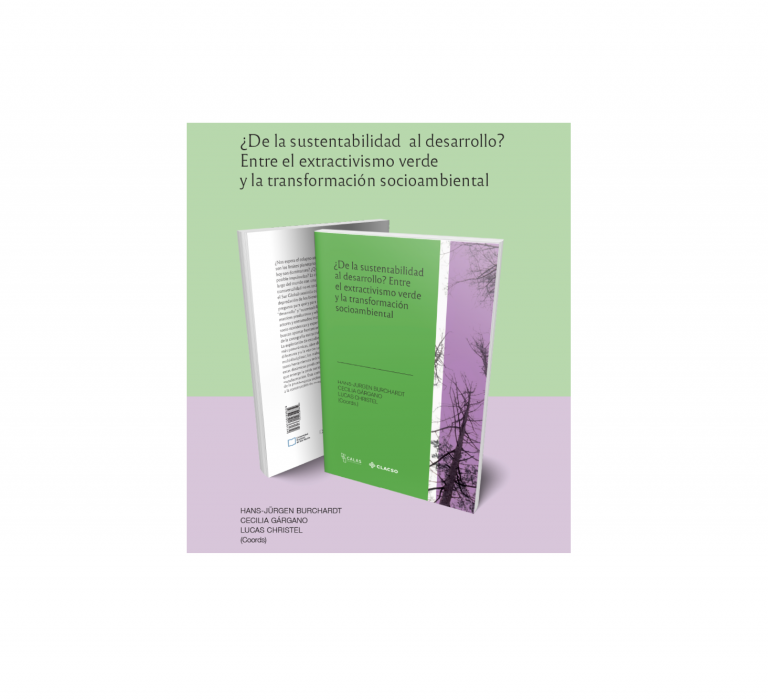
New book: ¿De la sustentabilidad al desarrollo? Entre el extractivismo verde y la transformación socioambiental
Hans-Jürgen Burchardt, Cecilia Gárgano, Lucas Christel Are we confronted with a total environmental breakdown, or can we avoid it? What are the planetary boundaries
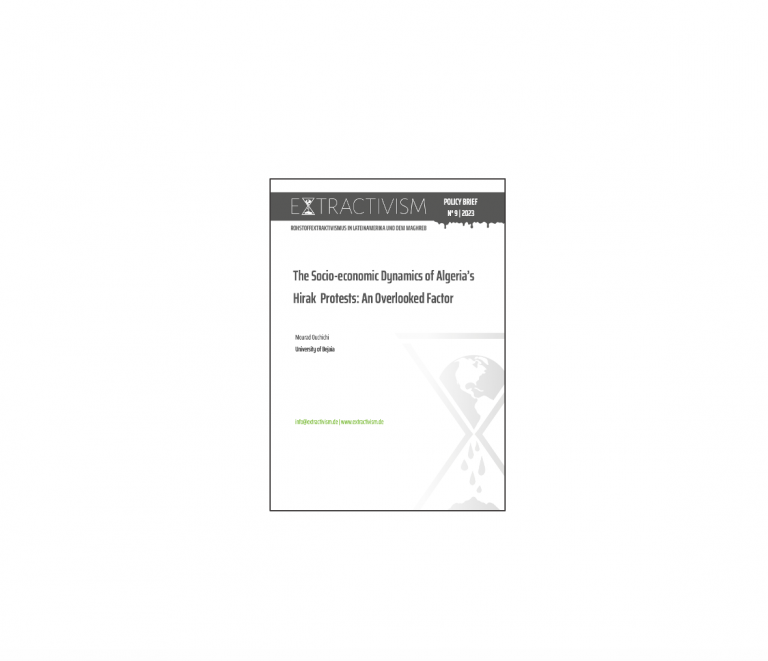
The Socio-economic Dynamics of Algeria’s Hirak Protests: An Overlooked Factor
This Extractivism Policy Brief 09/2023 shows: • In 2019, Algeria experienced one of the largest popular uprisings the country has ever seen in its post-independence
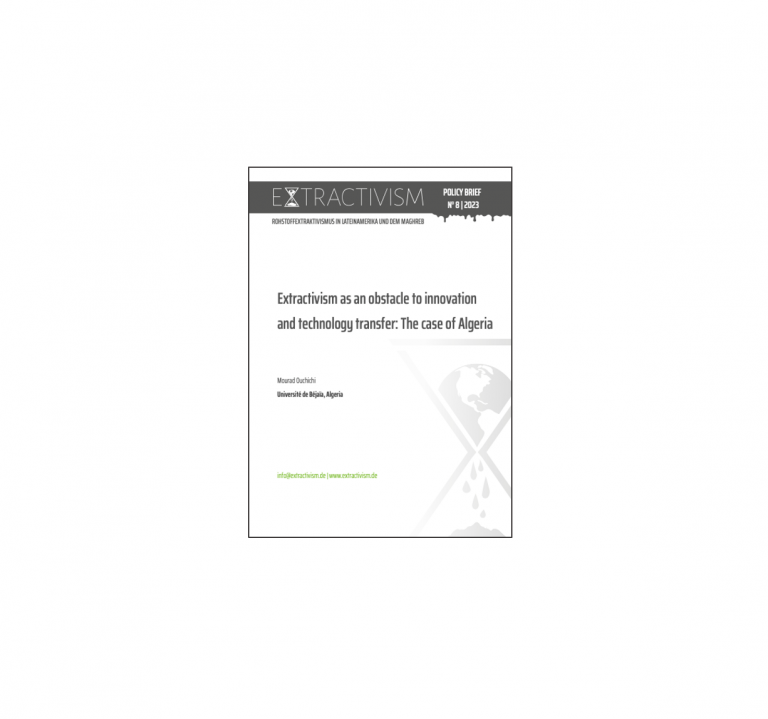
Extractivism as an obstacle to innovation and technology transfer: The case of Algeria
This Extractivism Policy Brief 8/2023 shows • The paper analyzes the lack of cooperation between universities and companies in Algeria. • There is a lack
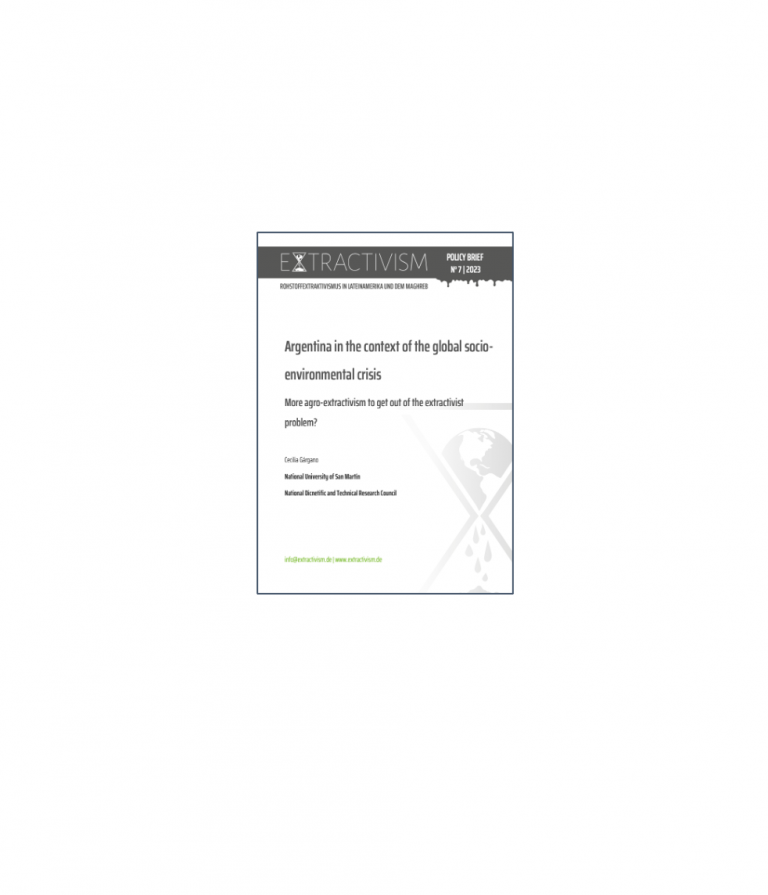
Argentina in the context of the global socioenvironmental crisis: More agro-extractivism to get out of the extractivist problem?
This Extractivism Policy Brief 7/2023 shows: • Agro-extractivism has shaped the productive matrix during the last four decades in Argentina. • Agro-extractivism not only does
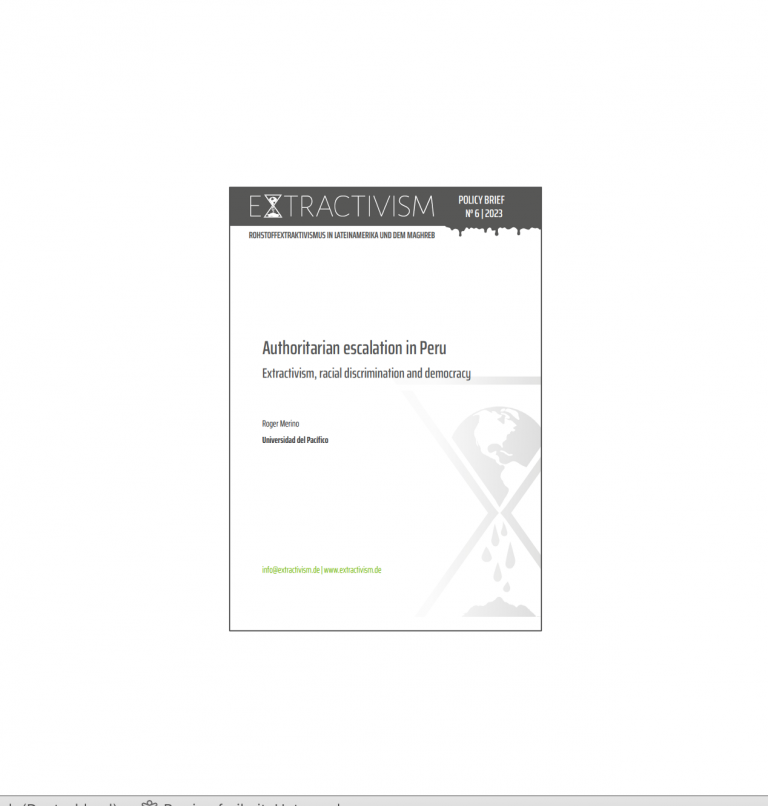
Authoritarian escalation in Peru: Extractivism, racial discrimination and democracy
This Extractivism Policy Brief 6/2023 shows •The current political crisis in Peru manifests long-standing social discontent over historical ethnic, class and environmentalinequalities that are largely
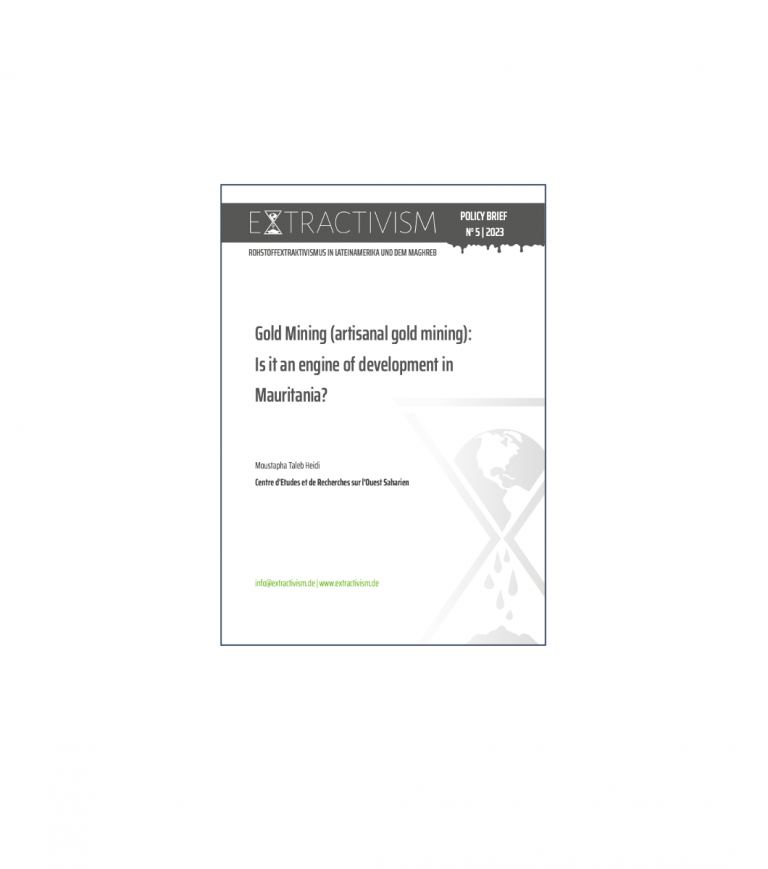
Gold Mining (artisanal gold mining): Is it an engine of development in Mauritania?
This Extractivism Policy Brief 5/2023 shows • In 2021, Mauritania exported approximately 13 million tons of iron, 20% of which was bound for Western Europe.
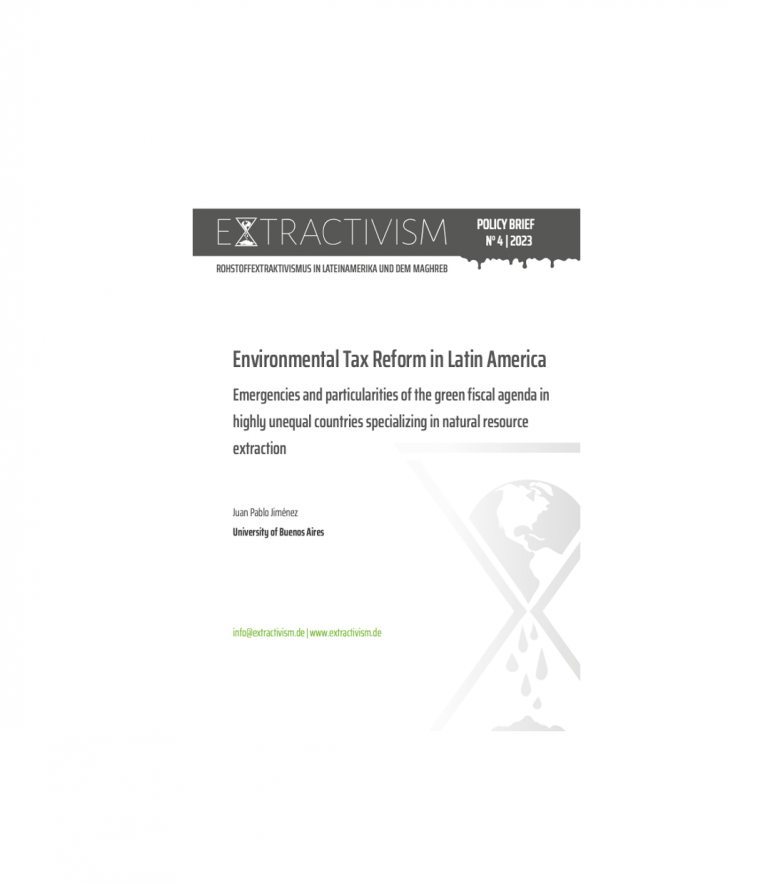
Environmental Tax Reform in Latin America
Humanity faces one of the most significant challenges in its history. The world must rapidly move toward decarbonized economies that minimize natural resource use to
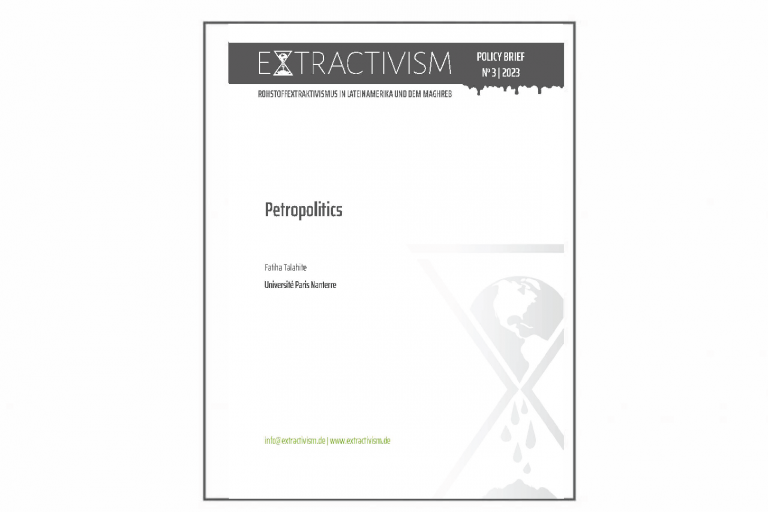
Petropolitics
The prevailing trend was that oil and gas were seen primarily as a matter of market mechanisms and competition rules, even if they were related

“New Generations and Leaders to Power: from the student movement of 2011 to the first government of the Frente Amplio in 2022”
On March 29th, the dossier “Youth, politics and generations in Latin America, from the second half of the 20th century to the 21st century” was
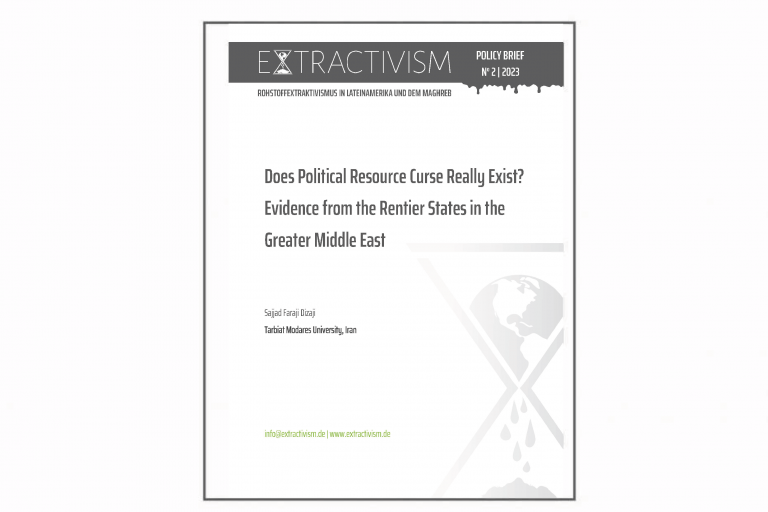
Does Political Resource Curse Really Exist? Evidence from the rentier states in the Greater Middle East
This Extractivism Policy Brief shows: • Oil rents may affect the political regimes through influencing both defense and non-defense expenditures. • Defense expenditures are considerably
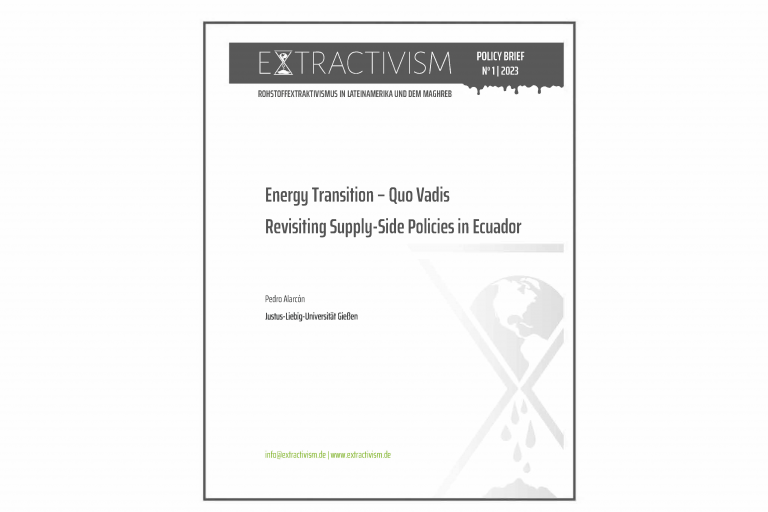
Energy Transition-Quo Vadis – Revisiting Supply-Side Policies in Ecuador
This Extractivism Policy Brief shows: • Extractivism has shaped Ecuador for the last half century. • The Yasuní initiative aimed at leaving about one fifth
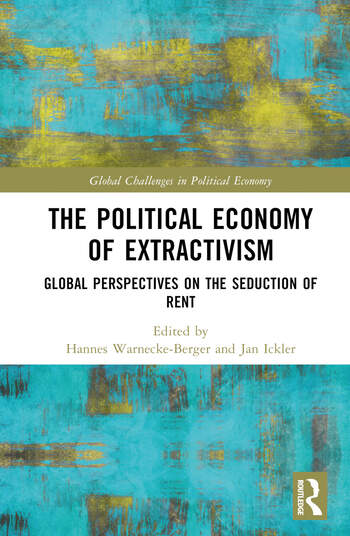
The Political Economy of Extractivism. Global Perspectives on the Seduction of Rent
Edited by Hannes Warnecke-Berger and Jan Ickler For many countries, primarily in the Global South, extractivism – the exploiting and exporting of natural resources –
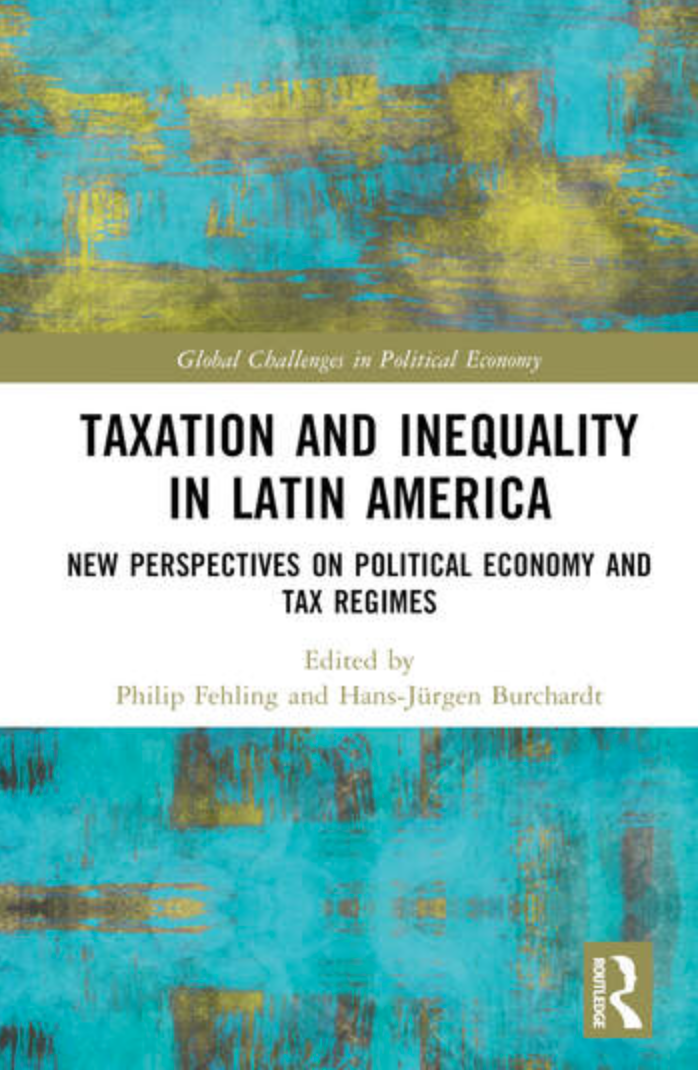
Taxation and Inequality in Latin America. New Perspectives on Political Economy and Tax Regimes
Edited by Philip Fehling and Hans-Jürgen Burchardt Taxation and Inequality in Latin America takes a heterodox political economy approach, focusing on Latin America, where current
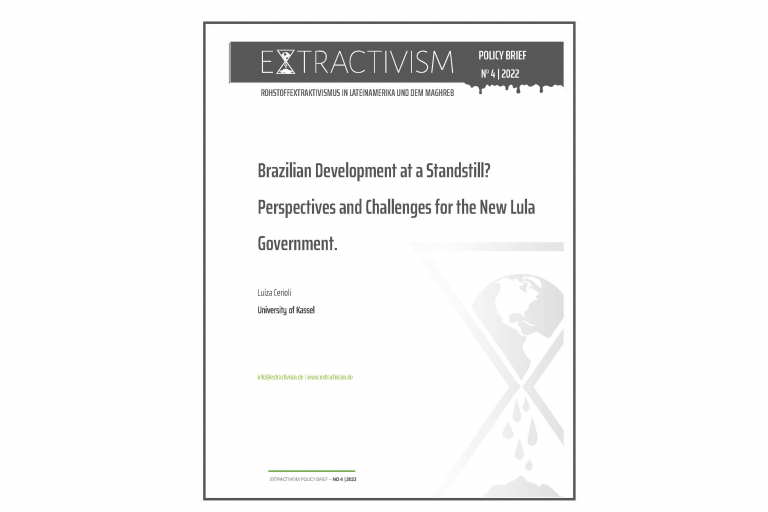
Brazilian Development at a Standstill? Perspectives and Challenges for the New Lula Government
This policy brief argues that Brazil has a standstill development syndrome as its development path swayed from extractivism to industrialization and back to extractivism. The
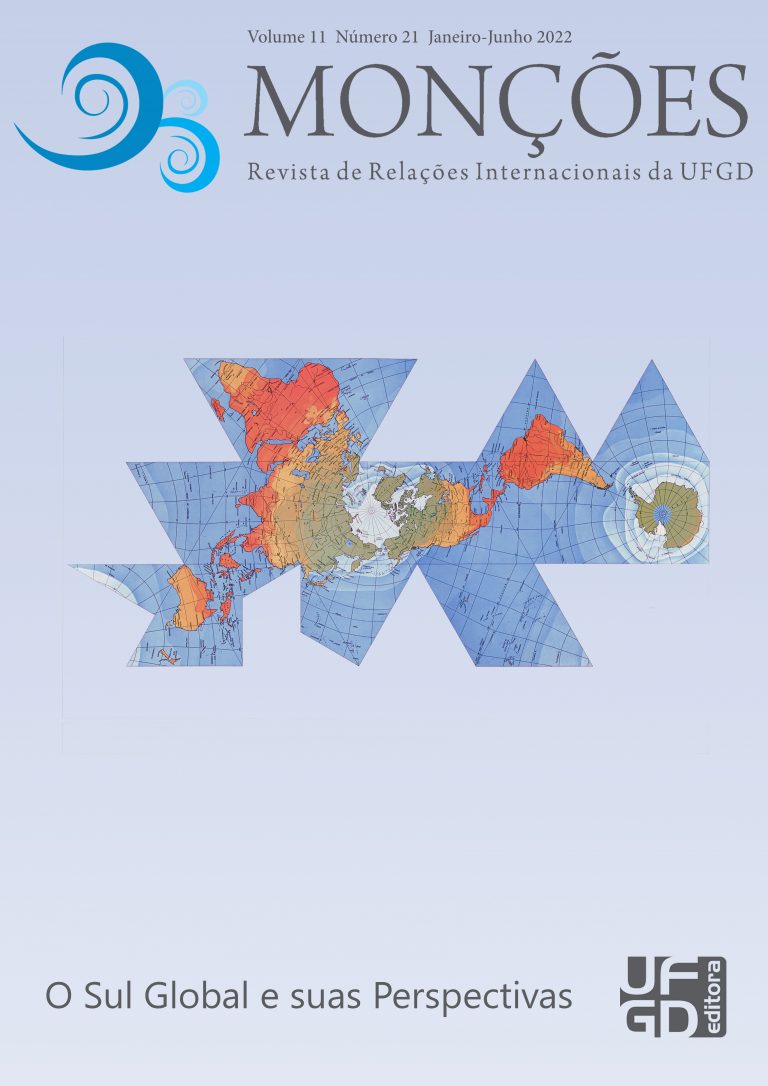
Special Issue: The Global South and its Perspectives: Expanding the Frontiers of International Relations
Our Post-Doctoral Researcher based at the University of Kassel, Luíza Cerioli, together with Dr. Fernanda Barasuol (Federal University of Grande Dourados) and Dr. Mariana Kalil
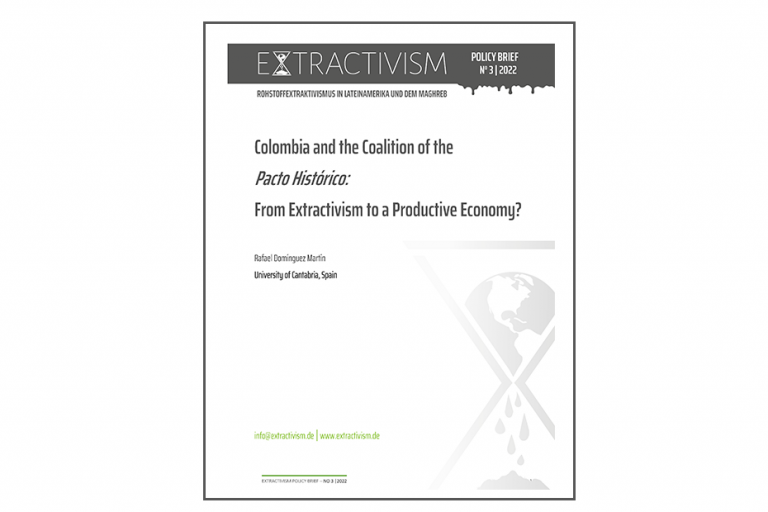
Colombia and the Coalition of the Pacto Histórico: From Extractivism to a Productive Economy?
This Extractivism Policy Brief argues The new Colombian president Gustavo Petro pushes for a transition from an extractivist to a productive economy. He needs to
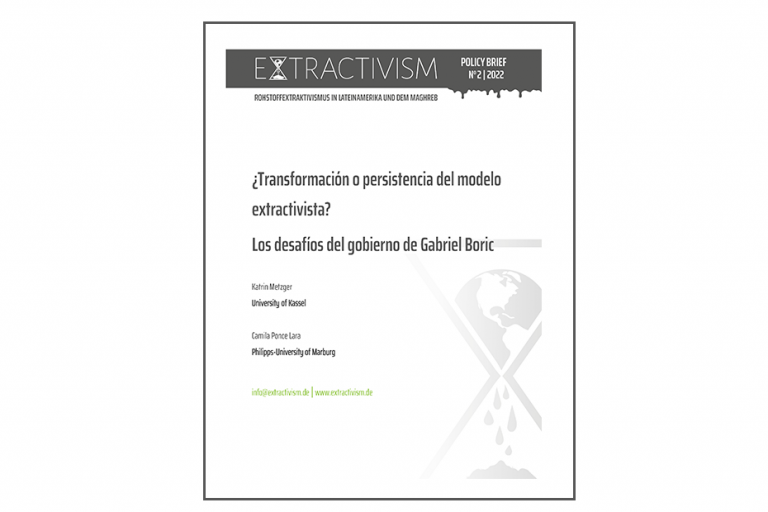
Transformation or persistence of the extractivist model? The challenges for Gabriel Boric’s government
This Extractivism Policy Brief argues The European energy transition has an impact on political decisions in Chile President Boric intends to change the mining sector
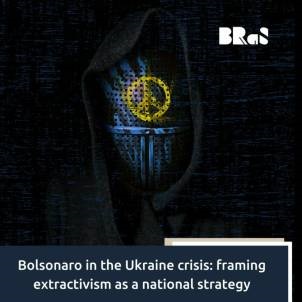
Blog post: Bolsonaro in the Ukraine crisis. Framing extractivism as a national strategy
Brazilian President Jair Bolsonaro seems to be somewhat confused on how to tackle the Ukraine-Russia conflict in a way that aligns with his interests. In
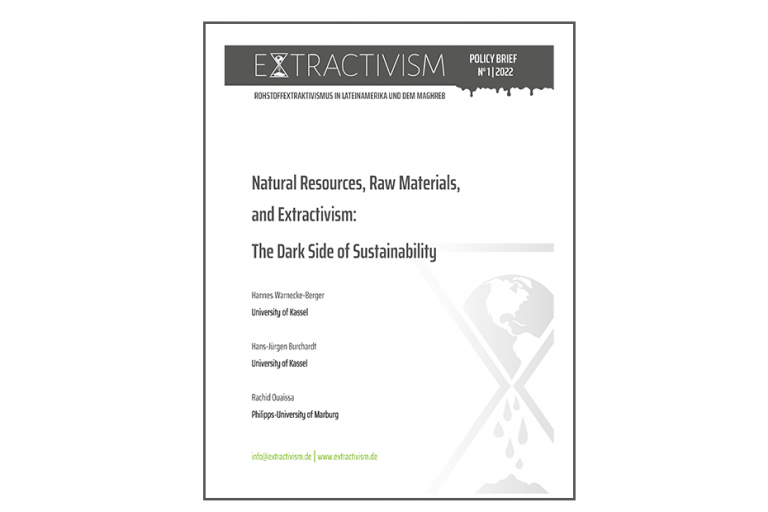
Natural Resources, Raw Materials and Extractivism: The Dark Side of Sustainability
This Extractivism Policy Brief argues Extractivism is the dark side of sustainability raw materials and primary commodities are the backbones of the global economy extraction
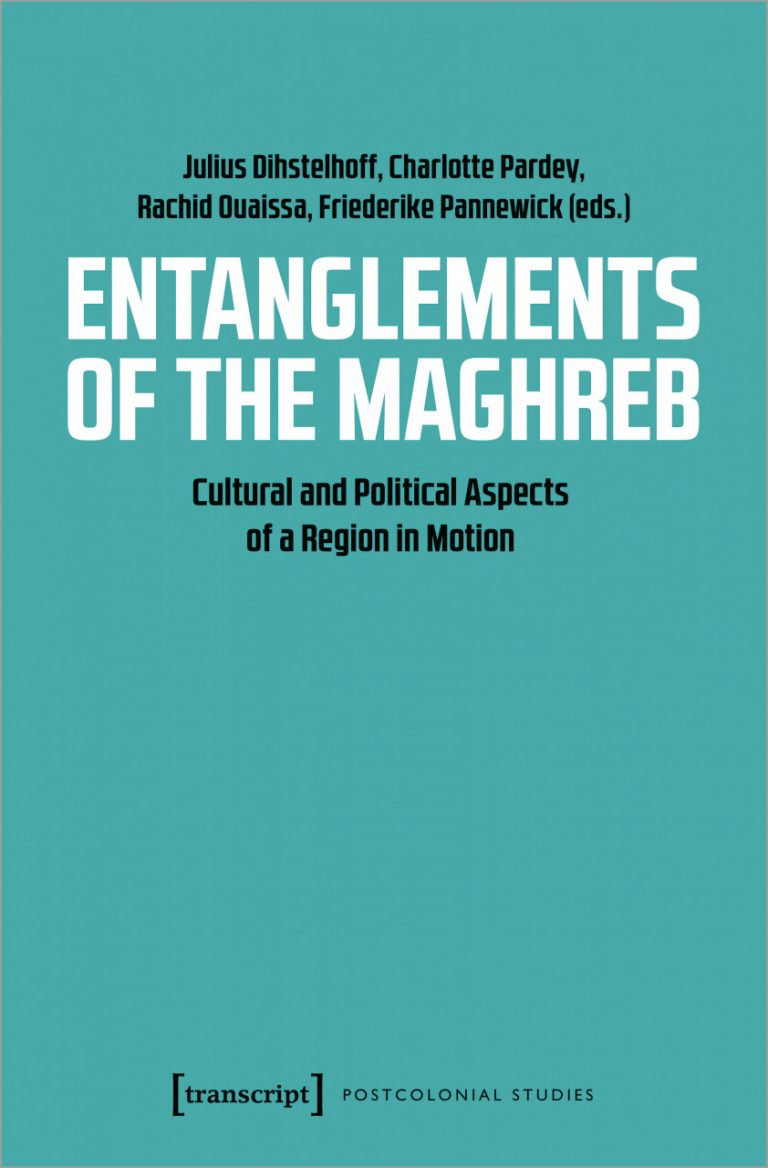
Entanglements of the Maghreb: Cultural and Political Aspects of a Region in Motion
The impulse for the recent transformations in the Arab world came from the Maghreb. Research on the region has been on the rise since, yet
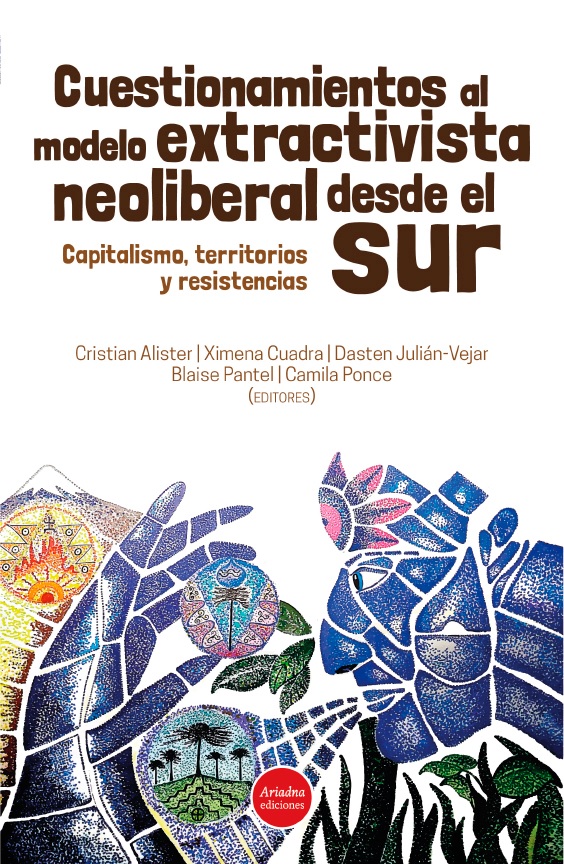
Questioning the neoliberal extractivist model from the south. Capitalism, territories and resistance
We would like to share the book “Questioning the neoliberal extractivist model from the south. Capitalism, territories and resistance”. Where the postdoctoral researcher of
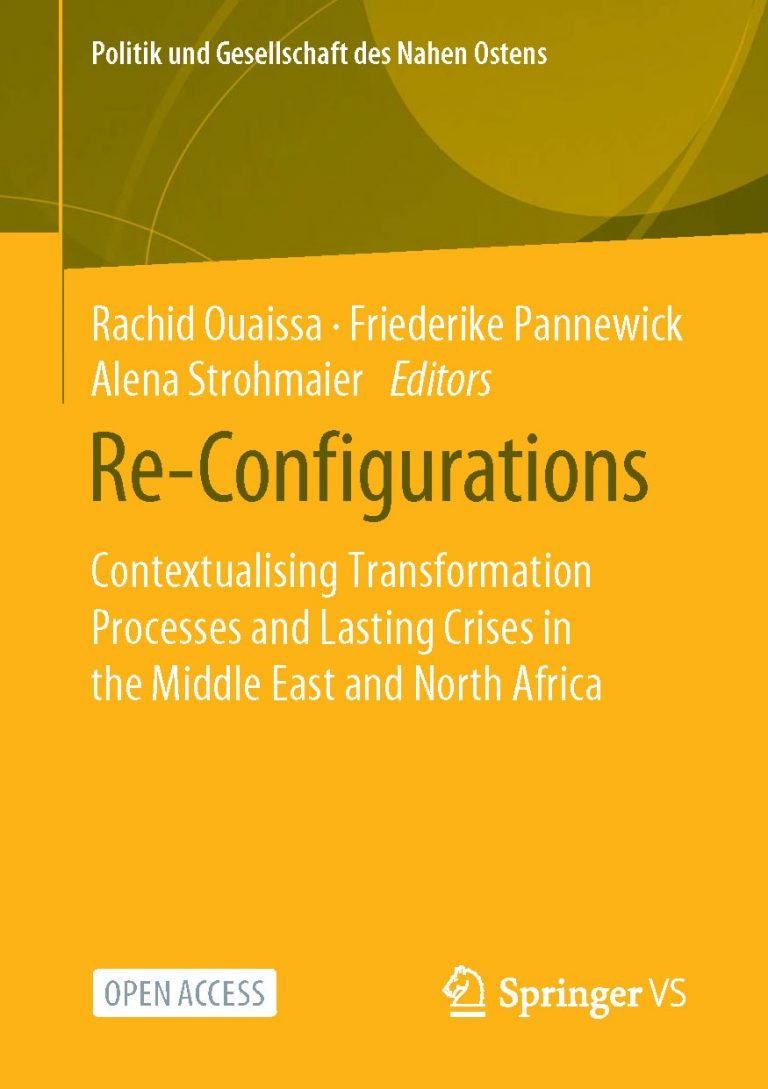
Re-Configurations. Contextualizing Transformation Processes and Lasting Crises in the Middle East and North Africa
This edited volume is an open access title and assembles both the historical consciousness and transformation of the MENA region in various disciplinary and topical
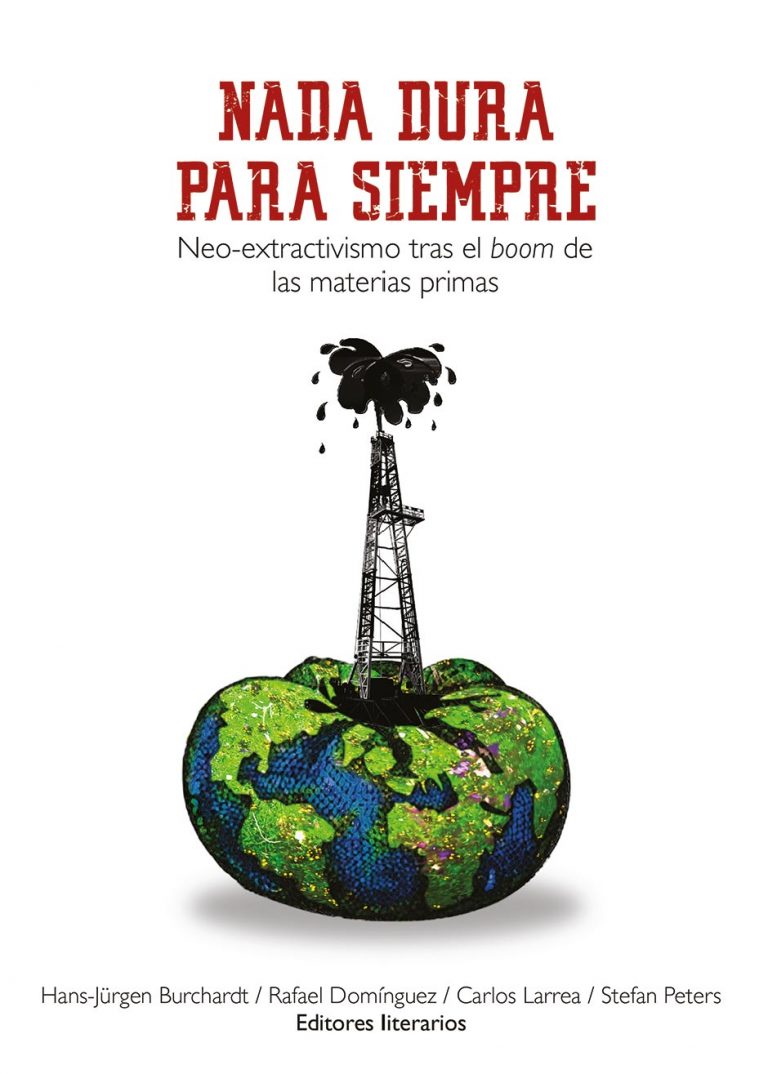
Nada dura para siempre: Neo-extractivismo tras el boom de las materias primas
In the wake of high world market prices at the beginning of the 21st century, many commodity exporting states experienced an enormous economic boom. In
Team
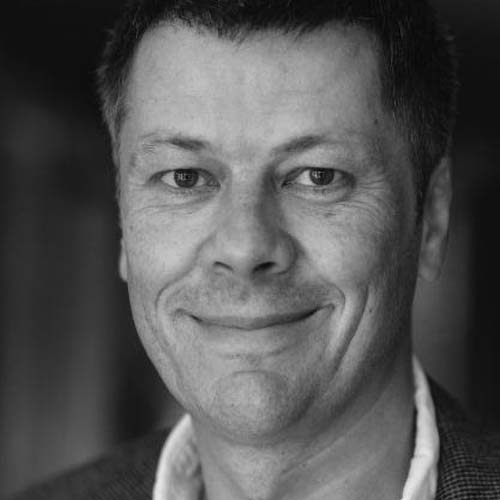
Prof. Dr. Hans-Jürgen Burchardt
Principal Investigator

Prof. Dr. Rachid Ouaissa
Principal Investigator

Johann Eschenburg
Latin America

Jan-Michael Vogt
Administration

Alexander Lohse
Maghreb
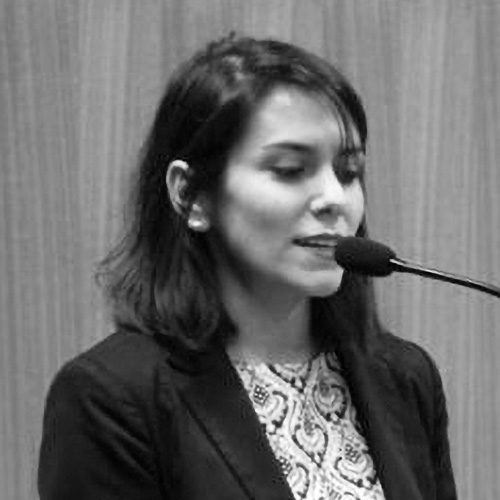
Dr. Camila Ponce Lara
Maghreb - Latin America



